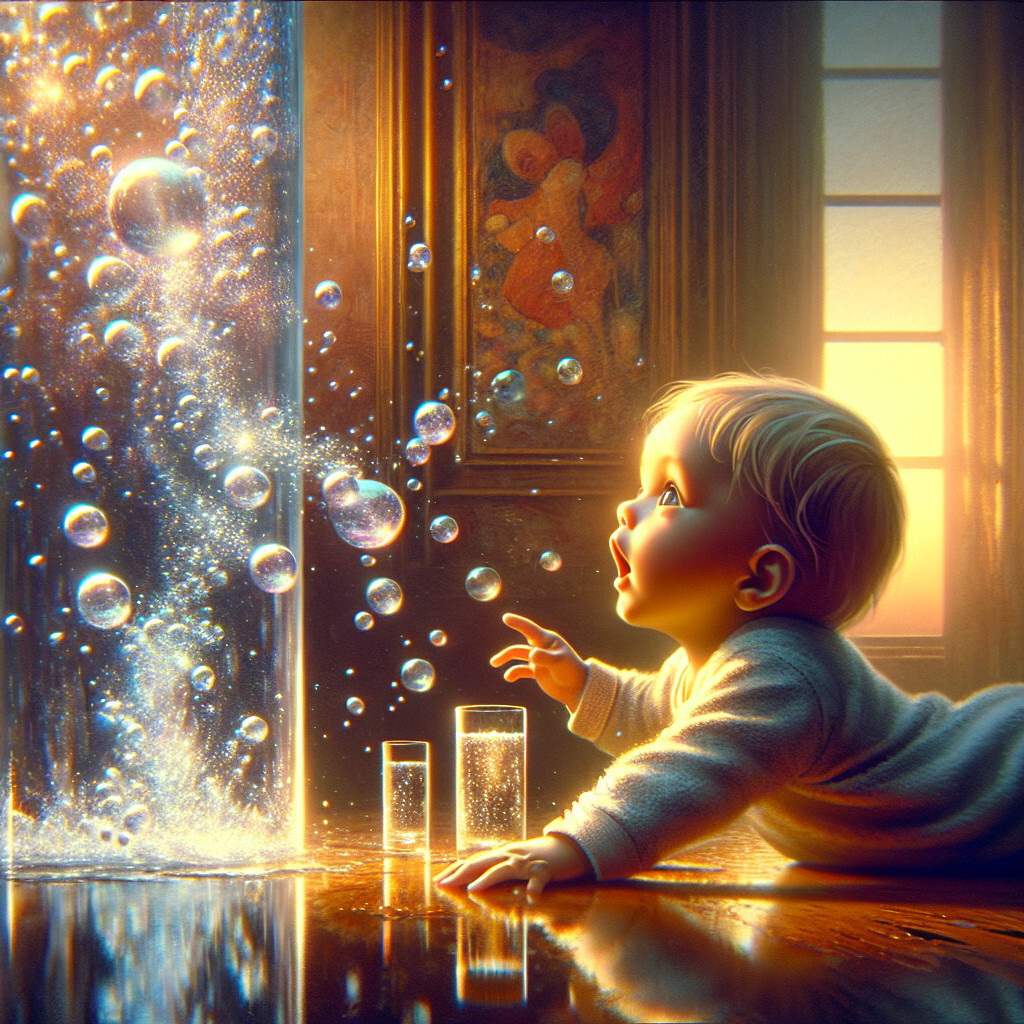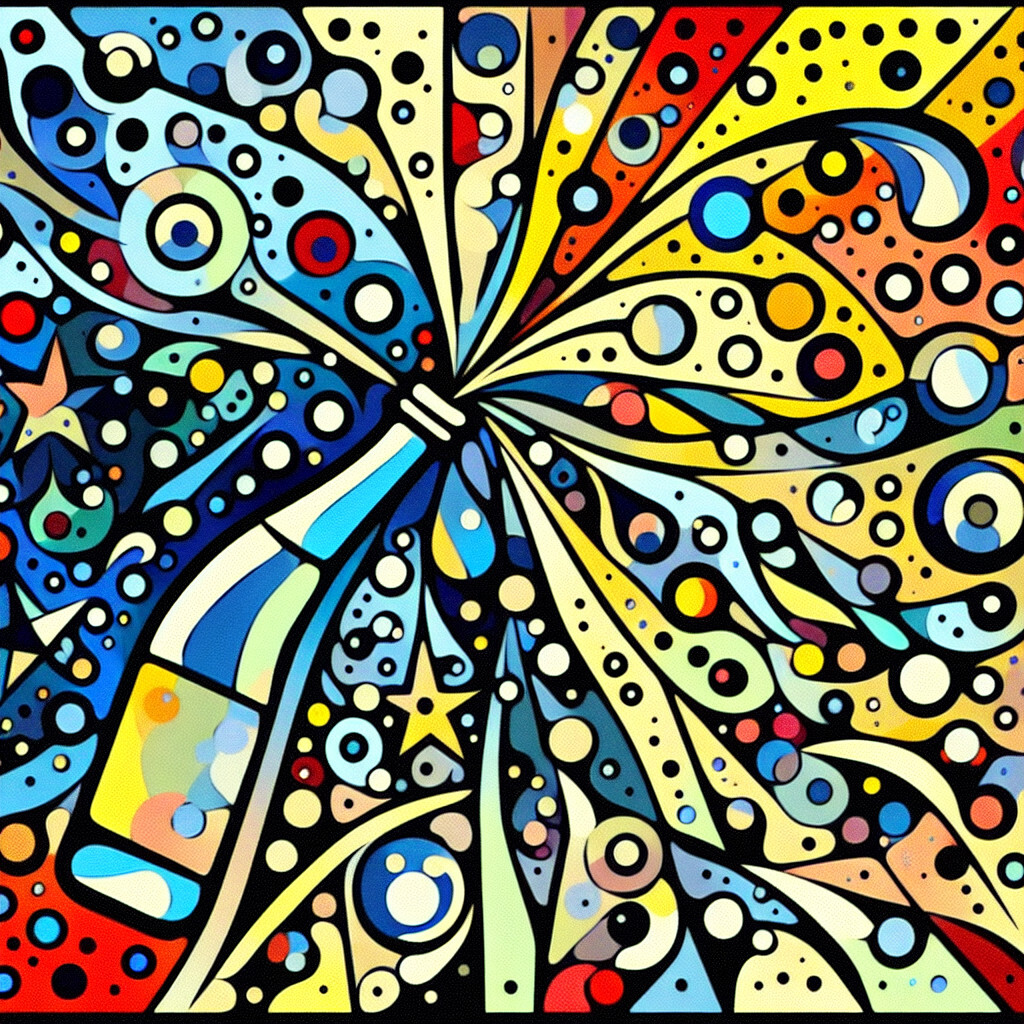-
Table of Contents
“Sparkling Water: The Hidden Erosion on Your Teeth!”
Introduction

Sparkling water is often seen as a healthy alternative to sugary drinks and alcohol, but it may not be as benign as it seems. The carbonation in sparkling water can potentially harm your teeth by eroding enamel, the outermost layer that protects against cavities. It can also lead to digestive issues such as bloating, gas, and indigestion due to the release of carbon dioxide gas in the digestive system. Furthermore, flavored sparkling water often contains added sugars and artificial sweeteners, which can contribute to weight gain and other health problems.
The Hidden Dangers of Sparkling Water Consumption
Sparkling water, a popular beverage choice for many, is often perceived as a healthier alternative to sugary sodas and artificially flavored drinks. However, despite its refreshing taste and seemingly harmless nature, sparkling water may not be as beneficial to your health as you might think. This article aims to shed light on the hidden dangers of sparkling water consumption.
Firstly, it is important to understand what sparkling water is. Essentially, it is water into which carbon dioxide gas has been dissolved under pressure, resulting in a fizzy drink. While it may seem like a simple and natural process, the introduction of carbon dioxide changes the nature of the water, leading to potential health risks.
One of the primary concerns associated with sparkling water is its impact on dental health. The carbonation process makes the water more acidic, which can lead to the erosion of tooth enamel. Enamel, the hard, protective coating of our teeth, is vulnerable to acid. Regular consumption of sparkling water can cause the enamel to weaken over time, leading to increased sensitivity, discoloration, and even tooth decay.
Moreover, sparkling water can also contribute to digestive issues. The carbon dioxide that gives the water its fizz can cause bloating and gas. This is because when you drink sparkling water, you also swallow gas, which can build up in the stomach and cause discomfort. For those with sensitive digestive systems or conditions like irritable bowel syndrome, the effects can be even more pronounced.
Another potential issue is the impact of sparkling water on bone health. Some studies suggest that the high levels of phosphate often found in carbonated beverages can lead to lower calcium levels in the body, potentially weakening bones over time. However, it’s important to note that most of these studies focus on soda rather than sparkling water, and more research is needed to fully understand the potential impact of sparkling water on bone health.
Furthermore, while sparkling water is often marketed as a healthier alternative to soda, many brands contain added sugars and artificial flavors, which can contribute to weight gain and other health problems. Even those that are labeled as “natural” or “unsweetened” can still contain high levels of sodium, which can lead to high blood pressure if consumed in excess.
In conclusion, while sparkling water may seem like a healthy and refreshing choice, it’s important to be aware of the potential risks associated with its consumption. The acidity can harm dental health, the carbonation can cause digestive issues, and the potential impact on bone health is still not fully understood. Additionally, many brands contain added sugars, artificial flavors, or high levels of sodium.
That being said, it’s important to remember that moderation is key. Consuming sparkling water occasionally is unlikely to cause significant harm. However, if it’s your go-to beverage, it might be worth considering other options, such as plain water, herbal teas, or fruit-infused water. As with all things related to diet and health, it’s always a good idea to consult with a healthcare professional before making any major changes.
Understanding the Negative Effects of Sparkling Water on Dental Health
Sparkling water, also known as carbonated water, has gained significant popularity in recent years. Its refreshing taste and effervescence make it an appealing alternative to still water and sugary soft drinks. However, despite its seemingly harmless nature, sparkling water may have some negative effects on dental health.
The primary concern with sparkling water is its acidity. The process of carbonation involves infusing water with carbon dioxide, which reacts with the water to form carbonic acid. This acid is what gives sparkling water its characteristic fizz and tangy taste. However, it also lowers the pH of the water, making it more acidic.
Acidic beverages, including sparkling water, can contribute to the erosion of tooth enamel. Enamel is the hard, protective outer layer of the tooth. It is designed to withstand the forces of chewing and protect the sensitive inner layers of the tooth from damage. However, enamel is not impervious to damage. Acidic substances can gradually dissolve the minerals in the enamel, causing it to weaken and thin over time. This process, known as dental erosion, can lead to a variety of dental problems, including tooth sensitivity, discoloration, and an increased risk of cavities.
It’s important to note that the acidity of sparkling water is much lower than that of other popular beverages, such as soda and fruit juice. Therefore, in comparison, sparkling water is a healthier choice. However, this does not mean that it is completely harmless. Regular and prolonged exposure to even mildly acidic beverages can still contribute to dental erosion over time.
Moreover, some types of sparkling water contain added citric or other fruit acids, which can further increase their acidity. These types of sparkling water can be particularly harmful to dental health. Additionally, flavored sparkling waters often contain sugar, which can contribute to tooth decay.
The temperature at which you consume sparkling water can also impact its effects on your teeth. Cold temperatures can cause teeth to contract, making them more susceptible to the effects of acid. Therefore, drinking chilled sparkling water may increase the risk of dental erosion.
Despite these potential risks, it’s not necessary to completely eliminate sparkling water from your diet. There are several steps you can take to mitigate its effects on your dental health. For instance, drinking sparkling water with meals can help to neutralize its acidity. Chewing sugar-free gum or rinsing your mouth with water after drinking can also help to restore the pH balance in your mouth and protect your enamel.
In conclusion, while sparkling water is a healthier alternative to sugary soft drinks, it is not without its drawbacks. Its acidity can contribute to dental erosion, particularly with regular and prolonged consumption. Therefore, it’s important to consume sparkling water in moderation and take steps to protect your dental health. As always, regular check-ups with your dentist are crucial in maintaining good oral health and detecting any potential problems early.
Why Sparkling Water Might Not Be as Healthy as You Think
Sparkling water, with its effervescent fizz and refreshing taste, has become a popular alternative to sugary sodas and flat water. It’s often marketed as a healthy choice, and many people believe it’s a guilt-free way to stay hydrated. However, despite its reputation, sparkling water might not be as healthy as you think.
Firstly, it’s important to note that not all sparkling waters are created equal. Some brands add sugar, artificial sweeteners, or other additives to enhance the flavor, which can lead to health problems if consumed in excess. For instance, consuming too much sugar can lead to weight gain and increase the risk of heart disease and type 2 diabetes. Artificial sweeteners, on the other hand, have been linked to a variety of health issues, including an increased risk of metabolic syndrome and obesity. Therefore, it’s crucial to read the label before purchasing a bottle of sparkling water to ensure it doesn’t contain any harmful additives.
Secondly, the carbonation in sparkling water can lead to dental issues. The bubbles in sparkling water are created by adding carbon dioxide, which turns into carbonic acid in your mouth. This acid can erode tooth enamel, the hard, outer layer of your teeth that protects against tooth decay. Over time, this can lead to sensitive teeth and cavities. While the effect is less than that of sugary sodas, it’s still a concern for those who consume sparkling water regularly.
Furthermore, the carbonation in sparkling water can also cause digestive issues. Some people find that the bubbles can lead to bloating, gas, and discomfort. Additionally, some studies suggest that carbonated beverages may increase the risk of heartburn or acid reflux. This is because the bubbles can cause the stomach to expand, which can lead to an increase in gastric pressure and the potential for stomach acid to flow back into the esophagus.
Lastly, while sparkling water is certainly a better choice than sugary sodas, it’s not as hydrating as plain water. The bubbles can make you feel full, causing you to drink less overall. This can lead to dehydration, especially if you’re relying on sparkling water as your primary source of hydration.
In conclusion, while sparkling water can be a refreshing and enjoyable beverage, it’s not without its potential downsides. The added sugars, artificial sweeteners, and carbonation can lead to dental and digestive issues, and it may not be as hydrating as plain water. That’s not to say you should avoid sparkling water altogether, but it’s important to consume it in moderation and be aware of the potential health implications. As with most things in life, balance is key. So, the next time you reach for a bottle of sparkling water, remember to check the label for any added sugars or artificial sweeteners, consider the potential impact on your dental health, and ensure you’re also consuming enough plain water to stay properly hydrated.
The Impact of Sparkling Water on Digestive Health
Sparkling water, also known as carbonated water, has gained significant popularity in recent years. Its refreshing taste and fizzy sensation have made it a preferred alternative to still water for many. However, despite its appeal, there are concerns about the impact of sparkling water on digestive health.
Sparkling water is created by dissolving carbon dioxide under pressure into water, resulting in the formation of carbonic acid. This gives the water its characteristic bubbles and tangy taste. While this process may seem harmless, it can have several implications for our digestive system.
One of the primary concerns is the potential for sparkling water to cause acid reflux. The carbonation in sparkling water can cause a buildup of gas in the stomach, leading to bloating and discomfort. This excess gas can also put pressure on the lower esophageal sphincter, the muscle that prevents stomach acid from flowing back into the esophagus. If this muscle is forced open by the pressure, it can result in acid reflux, a condition characterized by a burning sensation in the chest and throat.
Moreover, the carbonic acid in sparkling water can contribute to the acidity of the stomach. While our stomachs are naturally acidic to aid in digestion, an excess of acid can lead to conditions such as gastritis and peptic ulcers. These conditions can cause symptoms such as stomach pain, nausea, and vomiting.
In addition to these concerns, there is also evidence to suggest that the consumption of sparkling water can lead to a decrease in the production of digestive enzymes. These enzymes are crucial for breaking down food and absorbing nutrients. A reduction in their production can lead to indigestion and malabsorption, potentially leading to nutrient deficiencies over time.
Furthermore, the bubbles in sparkling water can also cause a feeling of fullness. While this might seem beneficial for those trying to control their appetite, it can also lead to inadequate nutrient intake if it results in reduced food consumption. This is particularly concerning for individuals with higher nutrient needs, such as pregnant women and athletes.
Despite these potential risks, it’s important to note that moderate consumption of sparkling water is unlikely to cause significant harm to most individuals. However, those with pre-existing digestive conditions or a predisposition to acid reflux may want to limit their intake.
In conclusion, while sparkling water can be a refreshing alternative to still water, it’s essential to be aware of its potential impact on digestive health. The carbonation can lead to acid reflux, increased stomach acidity, reduced digestive enzyme production, and a feeling of fullness that may limit nutrient intake. As with most things, moderation is key. If you enjoy sparkling water, consider balancing your intake with plenty of still water and a diet rich in fiber and other nutrients to support your digestive health.
Q&A
1. Question: Does sparkling water affect dental health?
Answer: Yes, sparkling water can potentially harm your dental health. The carbonation in sparkling water turns into carbonic acid in the mouth, which can erode tooth enamel over time.
2. Question: Can sparkling water lead to weight gain?
Answer: Some flavored sparkling waters contain added sugars and calories, which can contribute to weight gain if consumed excessively.
3. Question: Does sparkling water cause bloating?
Answer: Yes, the carbonation in sparkling water can cause gas to get trapped in your stomach, leading to bloating and discomfort.
4. Question: Is sparkling water bad for bone health?
Answer: Some studies suggest that carbonated drinks may negatively affect bone health, but the evidence is not strong. However, replacing milk or other calcium-rich beverages with sparkling water could potentially lead to inadequate calcium intake, affecting bone health.
Conclusion
In conclusion, while sparkling water is generally safe for consumption, it can potentially be bad for you due to a few reasons. It may lead to tooth decay due to its acidity, cause bloating and gas due to the carbonation, and if flavored, may contain added sugars and artificial sweeteners. However, these effects are usually minimal and can be mitigated by moderate consumption.





